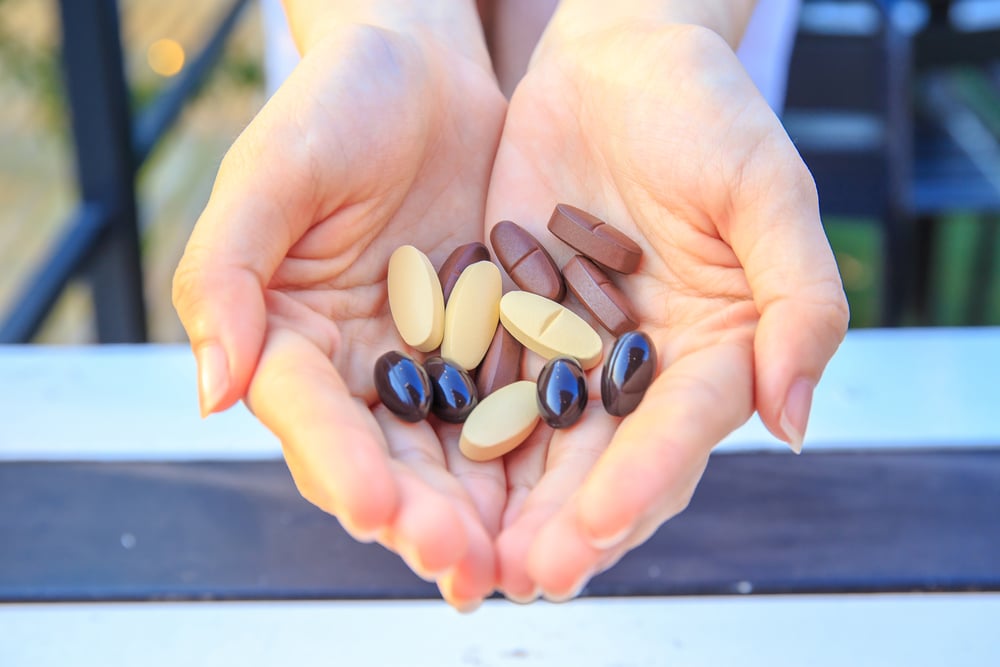A daily multivitamin seems like an obvious investment in your health. We all know vitamins play a role in nearly everything our bodies do, and we all know that a lack of vitamins can contribute to a wide range of health problems, such as anemia, bone loss, muscle weakness, and other issues. Why not take a daily pill to make sure you’re getting everything you need?
In reality, however, multivitamins are still the subject of debate in the scientific community. Multivitamins can be helpful for patients who suffer nutritional deficiencies, older patients, and patients in poor health. For typical healthy adults, however, it’s unclear how much good they do.

What the Science Says About Multivitamins
There’s no standard definition of what constitutes a multivitamin. Multivitamins can contain different combinations of vitamins, minerals, herbs, extracts, and fillers. Some vitamins also come in different forms, which may affect the body’s absorbs them, and how much benefit they have. All this makes it hard to study multivitamins as a whole, and findings that apply to one supplement may not apply to others.
Scientists have looked at how multivitamin supplements address a range of health conditions, but the results have been mixed. For example, several multivitamin studies show they may reduce heart attacks and other cardiovascular events, while others found no reduction in risk, and at least one study showed multivitamins protected women, but not men.
For cancer research, it’s the same story. Multis may reduce risk, have no effect, or even increase the risk of various types of cancer, depending on which study you look at.
Some studies show clear benefits for multivitamins, including several that indicate taking a multi may improve memory in older patients. But for the most part, the science isn’t conclusive.
Where Multivitamins Help

Both multivitamins and particular vitamin supplements can be useful for treating nutritional deficits and health risks — particularly on the advice of your doctor or medical provider. Multivitamin pills with a broad range of vitamins and nutrients are ideal for people with conditions that interfere with nutrient absorption, such as Crohn’s disease. People with these conditions have trouble getting enough vitamins from their food intake, so multivitamins can prevent malnourishment.
More targeted multivitamins combine a set of vitamins and nutrients to address a particular health need. For example, if you suffer from osteoporosis, it’s a good idea to take vitamin D and calcium. Vitamin D and calcium work together, with Vitamin D helping you absorb the calcium, which in turn helps strengthen your bones.
Similarly, B-complex vitamins typically combine 6 different B vitamins into a single pill, Pregnant women, vegans and vegetarians, people on antacids, and others often have low levels of B vitamins, and taking one pill with all the B vitamins is easier and may be less expensive than taking individual pills for B3, B5, B6, B7, B9, and B12.
The True Benefit of Multivitamins
It’s important to note that taking a multivitamin isn’t any better or worse for you than taking a separate pill of each vitamin, provided the individual vitamins have the same quality and the same combined dosage as the multivitamin.

The main benefit of multivitamins is simply convenience. However, the convenience of multivitamins could also affect your ability to stick with your vitamin regimen. If it’s easier to remember to take one multivitamin than six individual pills, you’re probably better off taking the multivitamin.
Ultimately, whether you take a multivitamin or not is a personal decision best discussed with your doctor. Multivitamins are safe and may have important benefits for older people, those with low levels of needed nutrients, and people with other health conditions or risks.
However, in general, your best bet is to get your vitamins from natural sources, such as fresh fruits, vegetables, and minimally processed supplements.

